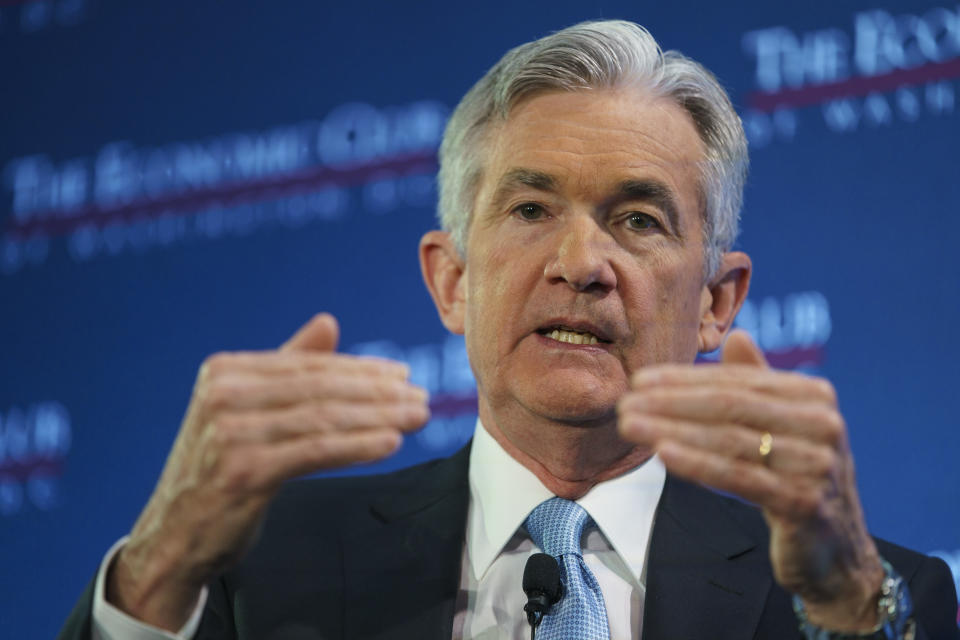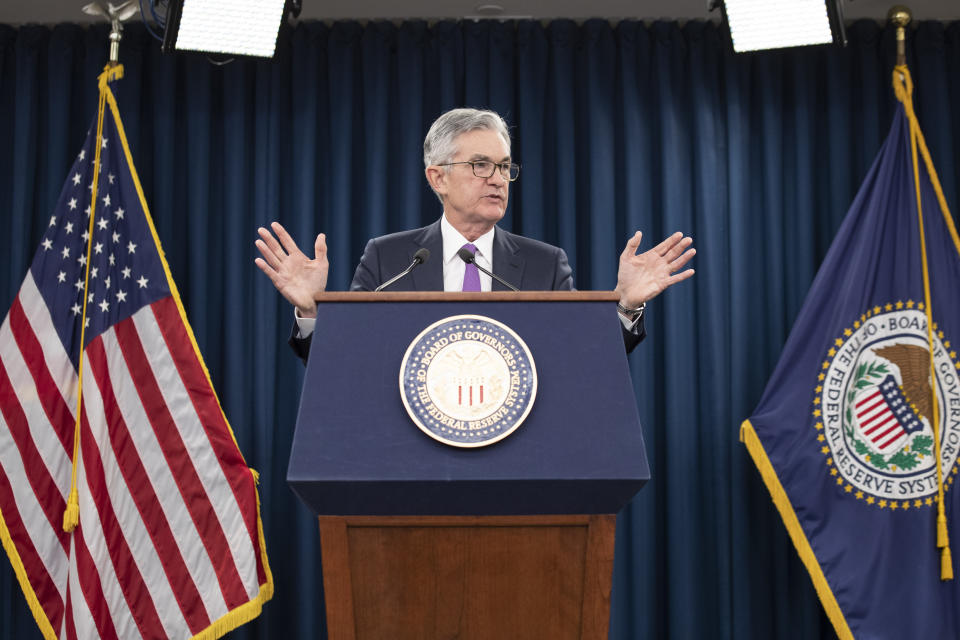Fed Chair Powell: We're seeing 'crosscurrents and conflicting signals'
Federal Reserve Chairman Jerome Powell said in prepared remarks to Congress Tuesday that the economy grew at a “strong pace” on balance last year, but acknowledged that the last couple of months have presented challenges for the central bank.
“While we view current economic conditions as healthy and the economic outlook as favorable, over the past few months we have seen some crosscurrents and conflicting signals,” Powell said in prepared remarks ahead of his testimony to the Senate Banking Committee.
Powell said data “softened” as financial markets turned volatile toward the end of 2018. Citing ongoing U.S. trade negotiations and slower growth in China and Europe, Powell said financial conditions are now “less supportive of growth than they were earlier this year.”
‘Data dependent’ policy decisions
The prepared remarks tee off Powell’s third Humphrey-Hawkins testimony on Capitol Hill. But Powell’s appearance Tuesday marks the first Congressional hearing since he completed his first full calendar year at the helm of the central bank.
Powell’s commentary also comes weeks after the January Federal Open Market Committee meeting where policymakers shifted their path of gradual rate hikes to a policy of “patience.”
The target federal funds rate currently sits at a range of 2.25% to 2.50%.

In his prepared remarks to Congress, Powell reiterated that the decision to take a pause on rate hikes was a response to “muted” inflation and concerns over “global economic and financial developments.”
“Going forward, our policy decisions will continue to be data dependent and will take into account new information as economic conditions and the outlook evolve,” Powell’s testimony reads.
As Powell has reiterated in the past, he reminded the Senate that the Fed will remain independent with its policy-making and needs to operate “without concern for short-term political considerations.” President Donald Trump has publicly criticized the central bank for raising rates, blaming the Fed for supposedly dampening the impact of the White House’s fiscal policies.
Inflation is a conundrum for the Fed
In his testimony, Powell said the Fed’s readings on employment and inflation “remain close” to the central bank’s dual mandate of maximum employment and stable prices.
He pointed to a “strong” job market, and referenced the blowout jobs report for January showing non-farm payrolls increasing by 304,000 jobs. The jobs report also showed average hourly earnings rising 3.2% over last year. Powell said recent measures show signs of “stronger” wage growth.

Inflation is the bigger conundrum for the Fed. Despite concerns last fall that the Fed may overshoot its 2% inflation target, the Fed now says inflation is “muted” and expects headline inflation to slip “further” below its target due to recent declines in energy prices. Measures of inflation from the 12-month change in the price index for personal consumption expenditures are estimated to have been 1.7% in December but core PCE, which excludes food and energy prices, is estimated at 1.9%.
Fed officials have recently expressed concern over persistently low readings of inflation.
Balance sheet
Powell also discussed the Fed’s balance sheet normalization process. The central bank recently acknowledged that it triggered market volatility as it attempted to communicate its policy on reducing its holdings of longer-term Treasuries and mortgage-backed securities accumulated during quantitative easing.
Powell’s prepared remarks Tuesday did not disclose more detail on when the balance sheet roll-off will end, nor did the central bank reveal the target size and composition of its final balance sheet. As Fed officials noted in previous weeks, policymakers will likely announce its plans to end the balance sheet normalization process by the end of this year. The Fed has also said the ultimate size of its balance sheet will be determined by demand for Fed liabilities like currency and bank reserves.
Echoing his commentary in early January, Powell insisted that the Fed has the ability to be flexible with the pace of its balance sheet wind-down. The Fed has already drawn down its balance sheet by about $1.2 trillion; its holdings now stand at about $4.0 trillion.
“I would note that we are prepared to adjust any of the details for completing balance sheet normalization in light of economic and financial developments,” Powell’s testimony reads.
Powell’s testimony to the Senate Banking Committee, which begins at 9:45 a.m. ET, will kick off a busy week of speeches for the chairman. Powell will return to Capitol Hill Wednesday to testify to the House Financial Services Committee, where California Democrat Maxine Waters leads the panel. On Thursday night, Powell is also scheduled to talk about recent economic developments in a speech in New York City.
Brian Cheung is a reporter covering the banking industry and the intersection of finance and policy for Yahoo Finance. You can follow him on Twitter @bcheungz.
Read more:
Three-fourths of business economists expect a recession by 2021, survey finds
Fed officials acknowledge concerns over balance sheet normalization
Fed officials not 'complacent' with inflationary pressures
New study argues US bank CEOs make too much money
Congress may have accidentally freed nearly all banks from the Volcker Rule
